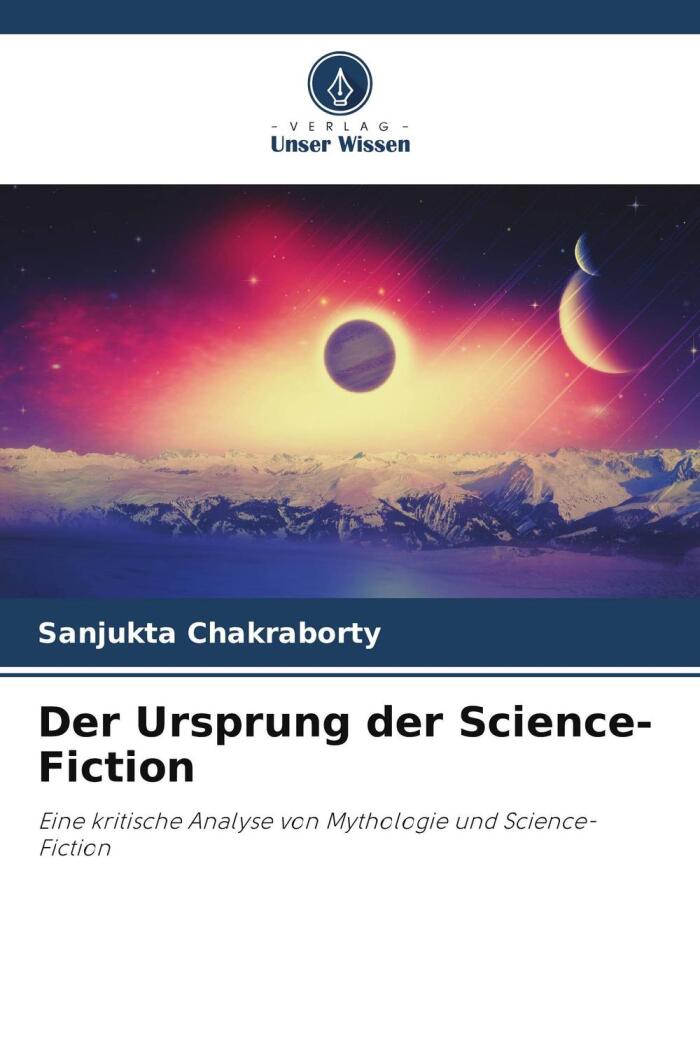
Der Ursprung der Science-Fiction: Eine kritische Analyse von Mythologie und Science-Fiction
아직 평점이 없습니다
Science Fiction
Action & Adventure
형식
페이퍼백
페이지
60
언어
독일어
출판됨
Oct 13, 2022
출판사
Verlag Unser Wissen
판
1
ISBN-10
6205251701
ISBN-13
9786205251706
설명
Sanjukta Chakraborty delves into the origins of science fiction, exploring its deep-rooted connections with mythology. The author examines how ancient myths have shaped narrative structures and thematic elements of modern science fiction. This critical analysis reveals that the stories told by early civilizations not only reflected their understanding of the world but also laid the groundwork for speculative fiction that thrives today.
Chakraborty emphasizes the transformative power of mythological tales, illustrating how they have provided humanity with frameworks for questioning existence and understanding the universe. Through a careful examination of various myths, she identifies recurring motifs that resonate within contemporary science fiction. By doing so, she uncovers the rich tapestry of human imagination that links the fantastical elements of the past to the technological wonders of the present.
The text invites readers to reflect on the significance of these ancient stories and their influence on the narratives we create. By merging literature with critical theory, Chakraborty presents a compelling case for the enduring legacy of myth in shaping not only the genre of science fiction but also the broader cultural discourse.
Ultimately, the analysis serves as a reminder of the interconnectedness of storytelling throughout history, encouraging readers to appreciate the profound implications of both myth and science fiction in our quest for knowledge and understanding.
Chakraborty emphasizes the transformative power of mythological tales, illustrating how they have provided humanity with frameworks for questioning existence and understanding the universe. Through a careful examination of various myths, she identifies recurring motifs that resonate within contemporary science fiction. By doing so, she uncovers the rich tapestry of human imagination that links the fantastical elements of the past to the technological wonders of the present.
The text invites readers to reflect on the significance of these ancient stories and their influence on the narratives we create. By merging literature with critical theory, Chakraborty presents a compelling case for the enduring legacy of myth in shaping not only the genre of science fiction but also the broader cultural discourse.
Ultimately, the analysis serves as a reminder of the interconnectedness of storytelling throughout history, encouraging readers to appreciate the profound implications of both myth and science fiction in our quest for knowledge and understanding.